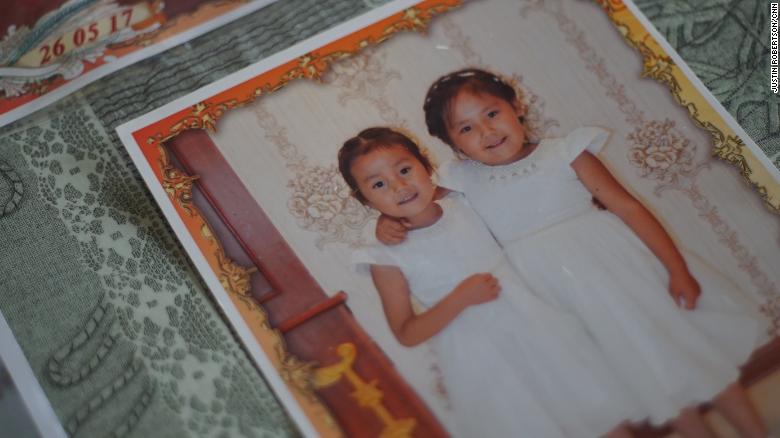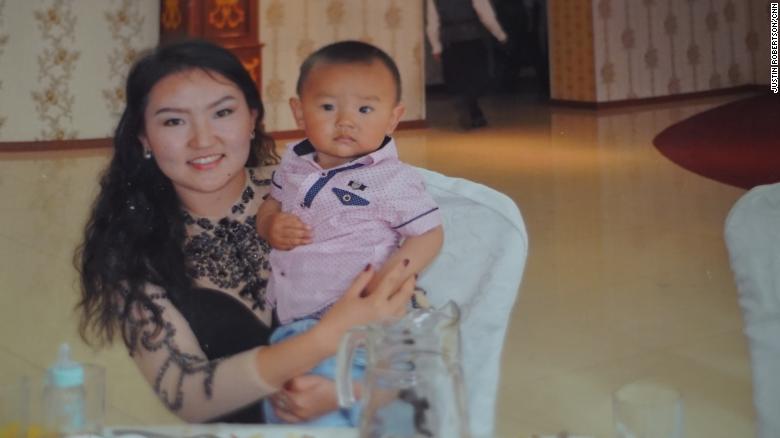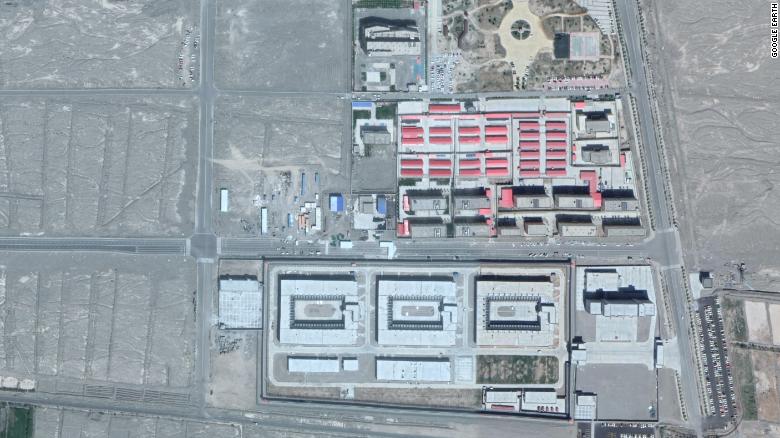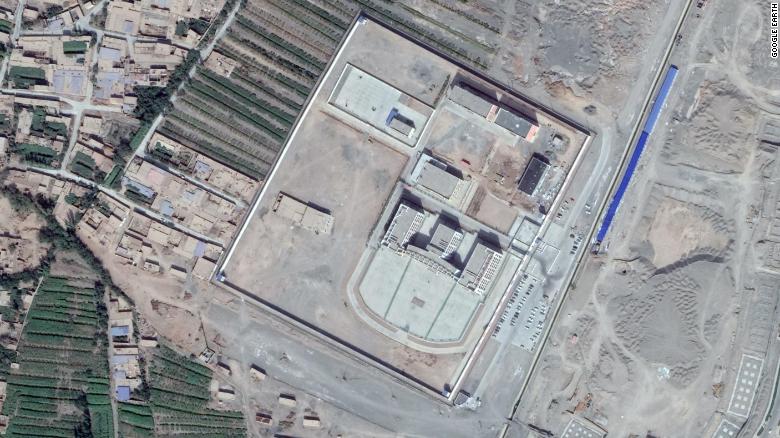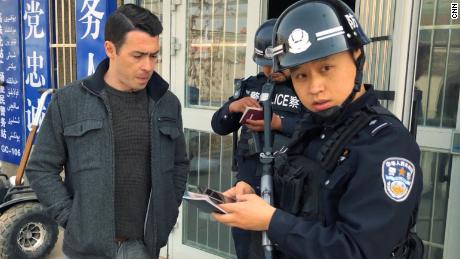From Russia to Central Asia, Beijing's Belt and Road Initiative triggers bad memories of Chinese imperialism.
BY ROBERT DALY, MATTHEW ROJANSKY
 Vladimir Putin, Xi Jinping, and President of Kazakhstan Nursultan Nazarbayev on May 9, 2015 in Moscow, Russia.
Vladimir Putin, Xi Jinping, and President of Kazakhstan Nursultan Nazarbayev on May 9, 2015 in Moscow, Russia.
In 1904,
Halford Mackinder theorized that whichever nation ruled the “World-Island” of Africa, Asia, and Europe would “command the world.”
One hundred and nine years later, in Astana, Kazakhstan, Xi Jinping made his move, declaring himself the prophet and China the engine of Afro-Eurasian integration.
The era of China’s Belt and Road Initiative (BRI) diplomacy had begun.
The World-Island quickly proved too small for Xi’s vision.
One month after the Astana speech, Xi went to Jakarta to announce that China would “strengthen maritime cooperation with ASEAN countries … and vigorously develop maritime partnership in a joint effort to build the Maritime Silk Road.”
In January, Foreign Minister
Wang Yi invited more than 30 Latin American and Caribbean nations to join the BRI.
Days later, the State Council issued a
white paper on China’s Arctic strategy whose final sentence encouraged Arctic Council members — which, unlike China, actually border the Arctic — to work with China to “participate in the governance of the Arctic, and advance Arctic-related cooperation under the Belt and Road Initiative.”
From South America to the North Pole, the BRI posits China as the overlord of global integration. But Beijing’s neighbors are rather more skeptical.
The authors recently visited Beijing, Astana, and Moscow to gauge how Xi’s vision jibes with those of Eurasian neighbors whose cooperation is essential to the BRI’s success.
We found an eagerness to participate in projects that support national development, but deep resistance to any westward or northern expansion of China’s practices, ideas, or population.
As the region’s newest capital, Astana might be expected to showcase Eurasian ambitions, but with the exception of a Chinese-built hotel, there is not a trace of Sinophilia in the city.
Storefronts and skyscrapers are ablaze with Cyrillic and English; there is barely a Chinese character in sight.
Russia remains determinedly Slavic and European; its stylistic and ideological orientations are wholly occidental.
Neither country hopes that China’s power will increase with its investments.
China’s strategic logic
Xi Jinping either hasn’t noticed or doesn’t care.
While Mackinder thought any World-Island hegemon must first rule Eastern Europe, Xi is confident that history proves the key to continental control lies in China.
In September 2013, he
told the Kazakhs that “more than 2,100 years ago … imperial envoy
Zhang Qian was sent to Central Asia twice to open the door to friendly contacts between China and Central Asian countries as well as the transcontinental Silk Road linking East and West.”
That October, Xi said in his
address to the Indonesian parliament that “Southeast Asia has since ancient times been an important hub along the ancient Maritime Silk Road.”
The implication was that premodern Eurasian and Southeast Asian trade was driven by China,
a distinctly revisionist view.
The term “Silk Road” was coined in 1877 by a German geographer to connote the historic phenomenon of Eurasian trade rather than a particular route.
The Silk Road was not Sinocentric, nor was it a road.
Xi’s mythologizing of the Silk Road also elides the fact that soldiers as well as salesmen moved along the storied routes.
Zhang Qian’s true mission was not to establish a free trade regime — Eurasian economic exchange began millennia before he was born — but to convince nomad peoples to ally with China in a war against Turkic tribes in what is now East Turkestan and Central Asia.
Xi’s paeans to Eurasian integration may skip China’s violent expansion, but that history has not been forgotten by China’s neighbors.
Xi’s historical references elide the deeper strategy of motivating China’s present-day BRI campaign. China is in the midst of what it calls a “period of strategic opportunity” resulting from its rapid rise and the slow growth of the West since 2008.
For Beijing, the financial crisis ended China’s 30-year economic apprenticeship to the United States and put the lie to the universalist claims of American values and the American-led world order.
Xi and his colleagues believe their strategic opportunity has been extended by the decline in American prestige since the 2016 election and by Trump’s withdrawal from the Trans-Pacific Partnership.
They see the epicenter of global power shifting East.
It’s hard to argue the point.
While the United States is an obstacle on China’s maritime borders, it barely registers as an annoyance when China looks west, across Central Asia, to Europe.
There, China hopes to employ its foreign exchange reserves, which are the largest in the world, its construction expertise, the lending power of its state-run banks, and its excess (and world-leading) capacity in steel, aluminum, and concrete production, to integrate not only infrastructure but information flows, financial systems, and customs clearance practices as well, winning deference in the process.
Beijing doesn’t disguise the self-interest woven into the BRI.
In China’s telling, the BRI will be good for everyone, but especially good for China.
As a
People’s Daily “
manifesto” published in early 2018 put it: “The world needs China … That creates broad strategic room for our efforts to uphold peace and development and gain an advantage” (emphasis added).
At a private meeting held in Washington in February, a Beijing-based scholar twice confided that the true purpose of the BRI was to internationalize China’s currency, the renminbi.
By making the renminbi the official currency of BRI transactions, the scholar explained, China would challenge the U.S. dollar’s status as the premier mode of global exchange even though the renminbi is tightly managed by Beijing.
China will require participants in BRI projects to accept Chinese standards of justice as well as its currency.
In an underreported story,
China is setting up new courts in Beijing, Xian, and Shenzhen to adjudicate BRI disputes.
The praise lavished on Xi and the BRI by China’s party-media, furthermore, suggest
the BRI is less about benefitting China’s partners than strengthening domestic support for China’s Communist Party.
Chinese enthusiasm for Xi’s vision is reaching absurd heights.
At a Beijing conference which the authors attended in late 2017, a Chinese foreign-policy analyst claimed that Xi’s vision could not only guide the peaceful development of the human race, but would benefit non-human animal species and plants as well.
There is reason to think such fulsome nonsense, now as during the Mao era, serves to mask Chinese doubts about the wisdom of the BRI.
Nonetheless, China’s framing of Eurasian integration now drives policy discussions worldwide; it is the BRI, not Russia’s Eurasian Economic Union or the United States’ all-but-forgotten New Silk Road initiative that captures imaginations and headlines.
No one can accuse Xi of thinking small.
Eurasia and Africa, which remain the short-term focus of the BRI, comprise 57 percent of the world’s landmass, 86 percent of its population, and 65 percent of its GDP.
The BRI vision — the economic integration of these regions through infrastructure — would be a historic achievement.
It is already accepted as commonplace that existing regional transportation networks cannot be connected, nor can new ones be built, unless China plays a major role in the financing and construction of highways, rail systems, pipelines, and ports.
But Xi’s BRI plan is as vague as its promised $1 trillion in investments is enticing.
Despite Xi’s lofty promises, China’s total foreign direct investments have grown along the same trajectory established before the BRI was announced, and actually
fell in BRI nations in 2016.
And though it’s early days for the BRI, the program has so far
generated few smashing successes and experts remain
skeptical that
Eurasian rail networks can ever compete with the low costs of ocean transport.
Nor is it clear that China’s branding, cash, and ambition can overcome the uneven development, political and cultural diversity, age-old hatreds, and daunting geography of the World-Island.
Accordingly, reactions to China’s proffered largesse have been mixed.
Russia, Kazakhstan, and even
Pakistan harbor
deep suspicions despite official enthusiasm.
The G-7 nations, India, and Japan have declined to endorse the initiative despite China’s constant pleading, primarily because they see the BRI as China’s bid for global dominance.
Despite doubts about the feasibility and revisionist tendencies of the BRI, however, Xi’s signature program is winning support from Thailand to Tajikistan to Greece.
Seventy-one countries have “
joined” the initiative, although it is not clear what joining entails.
But while Xi speaks in certainties, China’s Russian and Kazakh partners are more circumspect.
They welcome Chinese investment when it suits them, but do not embrace Xi’s calls for a “community of common future” overseen by a "benevolent" China.
Such doubts need not be fatal to Eurasian infrastructure integration, but widespread unease over China’s growing power indicates that many of China’s neighbors will not march under Beijing’s banner, even if they benefit from its wealth.
Moscow’s Eurasian pivot
In the aftermath of its annexation of Crimea, Moscow can hardly reproach Beijing for advancing expansive territorial ambitions by creating facts on the ground.
Both Russia and China regularly trumpet the primacy of sovereignty in international relations, yet neither shows much deference to the sovereignty of smaller neighbors.
Such attitudes have strained China’s ties with the West, and have utterly upended Russia’s relations with the United States and Europe, and thus driven Russia’s own “pivot” toward China and the Asia-Pacific.
For Moscow, China’s enthusiasm for enhanced Eurasian connectivity comes just in time, as Russia finds itself increasingly cut off from Western markets.
Of course, Russians are not only looking eastward out of pique or desperation.
Russian officials and experts talk explicitly about China’s “return to its natural place in East Asia” and insist that they cannot miss the opportunity to be a part of China’s and Asia’s rise.
At the same time, Russians recognize that their relatively small demographic and economic presence in East Asia will not alone secure them a leadership role in the resurgent, realigned region.
They hope to compensate for these limitations by capitalizing on their strength as a security and geopolitical actor in the region, and on warm personal ties between the Russian and Chinese leaders. It is against this backdrop that
Vladimir Putin proposed a “greater Eurasian partnership,” also dubbed the “integration of integrations,” as a path to connecting the Russian-led Eurasian Economic Union with China’s Belt and Road.
The Russian-Chinese strategic partnership announced in 2012 was hardly a conceptual breakthrough. Moscow and Beijing signed partnership agreements in 1994 and 1996 and concluded a Treaty of Friendship and Cooperation in 2001.
For years, they have sought to coordinate positions in the Shanghai Cooperation Organisation, BRICS, the G-20, and of course, the U.N. Security Council.
When asked about his most important foreign-policy achievement at the end of his second presidential term in 2008, Putin cited the
settlement of a long-simmering border dispute with China. In case there was any doubt about warming relations, in 2006 and 2007 the two countries
declared reciprocal years of Russia and China to celebrate trade and cultural and political ties.
Yet Russians recognize that China’s growing weight and ambition will test the durability of their own position in East Asia.
Like their Western counterparts, Russians are watching Chinese investments in Eurasian infrastructure closely, and say they will assess the significance of the Belt and Road based neither on fears nor promises, but on real-world results.
One such outcome was described to us by a Russian businessman who cautioned that while Chinese business partners would never make overt political demands, transactions with them would eventually be conducted entirely in renminbi, and supply chains would be reoriented entirely toward Chinese manufacturers.
As one Russian official put it to us, “Chinese culture does not orient to domination — they simply see themselves as the center of the world.”
Russia’s enthusiasm for increased Eurasian economic connectivity is partly an expression of its frustration with Europe and the United States.
It is not only that Western sanctions are damaging to Russia’s economy — they are, though that has not changed the Kremlin’s policies in Ukraine or Syria — but rather that they are marks of continuing disregard for what Russia sees as its rightful stature.
Some Russians still think in terms of a geopolitical “triangle,” with the United States, Russia, and China at the corners, while others are convinced that a new Cold War looms between Washington and Beijing.
Either way, many Russians consider China’s rise the leading indicator of the West’s decline, and they expect this fact to force concessions from Washington and Brussels over time, including the end of economic and political punishments imposed on Russia after 2014.
For Russians who share this view, pursuing economic integration with the East is, ironically, largely about securing better relations with the West.
But Russians may be mixing metaphors in their conjuring of the BRI as a counterweight to Western pressure and isolation.
After all, Russia matters most of all for China as a potential land corridor to Europe, whose half-billion wealthy consumers are the largest single market for Chinese goods.
Kazakhstan: the buckle in the belt?
Kazakhstan is landlocked and sparsely populated, though rich in energy and other natural resources. Hemmed in by the behemoths, Russia and China, and saddled with the legacies of rule from Moscow during the tsarist and Soviet periods, Kazakhstan has no shortage of geopolitical challenges.
So Kazakh officials are justifiably proud of having secured their country’s sovereignty, built a relatively stable, prosperous economy, and forged a distinctive but still pluralistic national identity over the past three decades.
A sense of that determination and pride comes across when Kazakhstan’s leaders refer to their nation as the “buckle” in China’s BRI.
Kazakhstan’s geography makes it central to the belt.
The most efficient land route from Western China to Eastern Europe passes through Kazakhstan en route to Russia.
The rail journey from China to Europe over this route now takes about 14 days, but Kazakh officials aim to bring that down to 10 through physical infrastructure enhancements and streamlining border crossings.
Kazakhstan’s participation as a core member of the Eurasian Economic Union with Russia and Belarus means that customs are standardized across all three former Soviet states, so that — at least in theory — shipments should be held for inspection only once at each end of the route, where trains must shuttle between standard (European and Chinese) and wider (Russian and Kazakh) gauges. Climate-controlled rail cars moving swiftly from Chinese factories to European markets in less than two weeks promise to revolutionize trade in high value-added products such as advanced electronics. European producers aim to fill returning rail cars with food and luxury items that find eager buyers in China.
Kazakhstan, while hardly a poor country, is acutely aware of the need for new sources of growth and a development vision that looks beyond energy exports.
Connecting Eurasia may offer the opportunity not only to boost Kazakhstan’s own trade with China and Europe, but to extract transit fees provided rail volumes continue growing as they have over the past decade, from 1,200 containers in 2011 to over 200,000 in 2017.
Moreover, Kazakh leaders argue that the construction of transportation infrastructure connecting the country’s own eastern and western regions has particular value for a country that has historically been focused on north-south linkages.
This is why, according to officials, Kazakhstan invested $5 billion of its own sovereign wealth in BRI infrastructure projects, including construction of what is meant to be the world’s largest dry port facility at Khorgos.
“When China proposed the [BRI] idea,” one Kazakh expert explained, “they found a very motivated partner.”
So much for the attraction of the BRI for Kazakhstan.
What about the risks?
For now, Kazakh officials insist they have relations with both Russia and China well in hand.
They are confident in their ability to keep trade and investment separate from politics and security. Whereas Moscow’s pivot eastward was a largely political decision, they argue, for Astana it’s just good business, with no political component.
Yet while Kazakhstan has paid for its share of infrastructure construction the Chinese have invested nearly $30 billion across more than 50 projects as well.
In fact, China is now the leading foreign investor in all five of the former Soviet Central Asian republics, Kazakh students are increasingly studying abroad in China (some 40,000 to date), and Chinese workers have flocked to attractive jobs in pipeline, rail and other construction projects, especially in Western Kazakhstan.
How close is too close for comfort?
Although Kazakhs embrace their status as a “truly Eurasian” country, they have absorbed Eurocentric views about China from their long association with Russia, while channeling insecurities and prejudices of their own.
Kazakh-Chinese projects to connect Eurasia may be all business for both sides, but they are hardly equal partnerships.
As one Kazakh expert queried, “how could we integrate with 1.5 billion people?”
In 2016, thousands of Kazakhs protested over a proposed
land reform that critics argued would result in Chinese buying up too much Kazakh soil.
Arms-length business ties may suit Kazakhstan, but China will almost inevitably seek more respect, and much more control, as its investment in the region continues to grow.
“Remember,” cautioned one well-placed international observer in Astana, “that the biggest central Asian country is western China.”
Like most of China’s neighbors, Kazakhstan and Russia judge China’s intentions not by China’s dubious historiography and lofty rhetoric, but in light of their own experience, interests, and vulnerabilities.
They are enticed by China’s deep pockets, but unconvinced of its good will.
Considering the sensitivities of its neighbors, Beijing may be wise to keep its BRI vision vague and to let the program evolve gradually.
It runs the risk, however, that this lack of specificity will be read as a cover for Chinese self-interest. China’s prospective partners across Central Asia and Eastern Europe, after all, are no strangers to imperialist plots and bristle at any hint of cultural condescension, economic exploitation, or encroachment on their sovereignty.
Despite Xi Jinping’s difficulty in translating his vision to foreign and domestic skeptics, the BRI has become a global force, both symbolically and as an engine for real investment.
As Eurasian integration evolves, and if China continues to adjust its practices as a world power, the BRI may achieve many of its goals.
It is unlikely, however, that the nations of the World-Island, many of which are proud civilization-states, will embrace Chinese leadership.
Even if the BRI helps to forge a Eurasian logistical network, its anxious beneficiaries are not likely to give China the deference it seeks.
China’s response to that disappointment will be the true measure of its Eurasian dreams.

